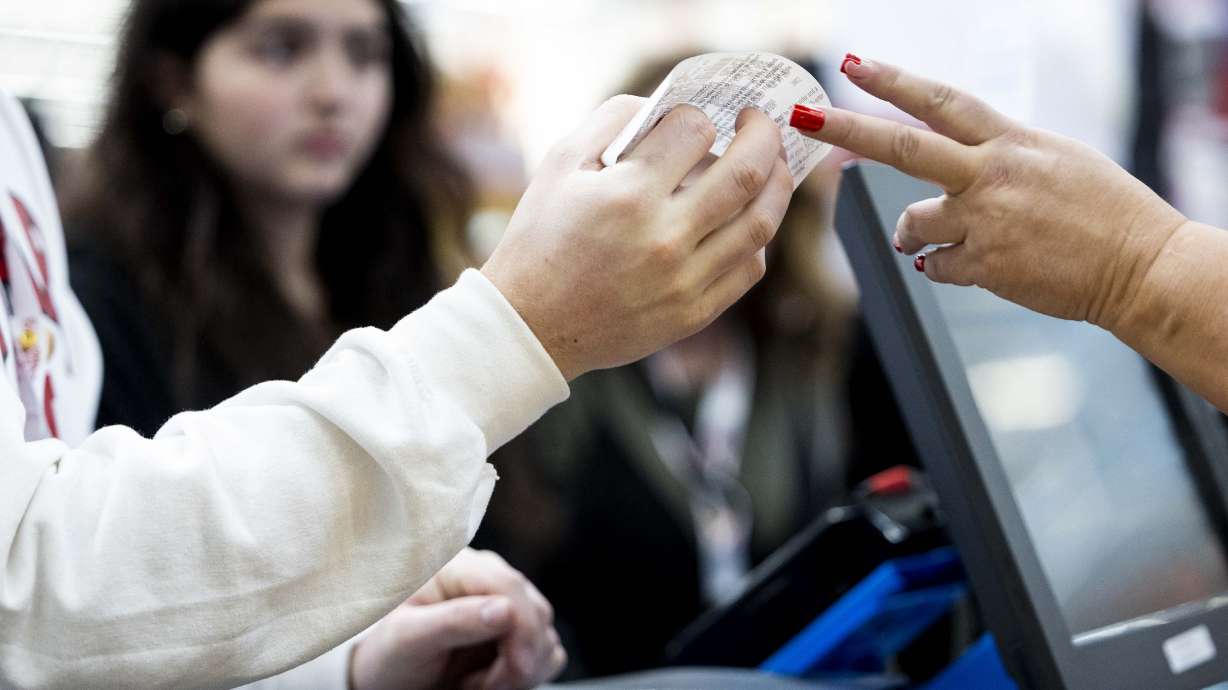SALT LAKE CITY — Utah’s consumer sentiment in July hit its lowest point since September 2024, falling 4.8% from June to July, according to the Kem C. Gardner Policy Institute’s latest survey.
While Gardner Institute economist Phil Dean said the decline (from 82.3 in June to 78.4 in July) is within the survey’s margin of error, the latest dip could reflect a feeling of “uncertainty” consumers have.
A lot of that uncertainty, Dean said, may be related to international trade and more specifically, tariffs. President Donald Trump’s higher tariffs on imports from dozens of countries kicked in on Thursday, raising the average import duty to its highest in a century.
When it comes to the tariffs, Dean said there are two things to think about.
“The first thing is the tariff itself and the direct impact of the tariff itself. And then the second thing is the uncertainty around the tariffs, where it’s kind of been, they start, they stop. It’s this rate that then it changes to a different rate,” Dean said.
He added that the tariffs themselves will “certainly” have direct impacts.
“That money comes from somewhere. So over the short term, either it’s coming out of business profits, if businesses are not passing that on to consumers, or they pass it on to consumers and then that shows up in higher prices on imported goods,” Dean said.
While the long-term argument is to eventually bring manufacturing back to the U.S., that’s a process that Dean said could take up 10 years to take root.
In his eyes, uncertainty around tariffs could impact consumer sentiment as much as the tariff itself.
Related:
While it’s not specifically asked about in the Institute’s survey, Dean said Utah’s housing prices could also be impacting Utah’s sentiment.
“Some of this uncertainty with … daily goods that people are buying, that’s combined or overlaid with housing prices that are really high. Especially for younger generations or people that are older and that are renting, I think that also creates a lot of challenges,” Dean said. “Looking at where housing is at already and kind of making things tight financially and then if tariff impacts come in on top of that, I think that’s adding to some of the uncertainty or some of the potential challenge people see coming down the road.”
Still, he said Utah’s economy is holding strong. That’s reflected when comparing Utah’s July consumer sentiment with the U.S. as a whole, with the University of Michigan’s national survey showing U.S. sentiment at 61.7.
“On the jobs front, we’re still seeing fundamental economic strength here in Utah,” Dean said. “Our job growth rate is more than twice that of the nation and so it’s kind of been a consistent story since we started the consumer sentiment index, with a couple small exceptions, that Utah has outperformed (the U.S.) in terms of sentiment.”
The full survey can be found here.
The Key Takeaways for this article were generated with the assistance of large language models and reviewed by our editorial team. The article, itself, is solely human-written.
